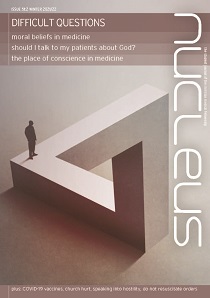COVID-19 increases prevalence of anxiety and depression globally
'First global estimates of the impact of the COVID-19 pandemic on mental health suggest an additional 53 million (28 per cent) cases of major depressive disorder and 76 million (26 per cent) cases of anxiety disorders were due to the pandemic.' 1This conclusion was based on extrapolation from 48 studies on depression and 27 on anxiety published during the height of the pandemic (January 2020 to January 2021). The two factors mainly responsible for this increase in mental ill health were, not surprisingly, daily infection rates and the social isolation and reduction in mobility resulting from enforced lockdowns. The study found that women's mental health suffered more than men's - and that younger people suffered more than older people.The authors recommend that more be done to strengthen mental health systems within most countries, but do not suggest how this might be funded at a time when COVID has severely impacted world economies.1. Santomauro D et al. Global prevalence and burden of depressive and anxiety disorders in 204 countries and territories in 2020 due to the COVID-19 pandemic. 8 October 2021. bit.ly/globalcovidimpact
can medical research be trusted?
Not always, suggests Richard Smith, former editor of the BMJ in a British Medical Foundation blog. [1] He goes so far as to say: 'It may be time to move from assuming that research has been honestly conducted and reported to assuming it to be untrustworthy until there is some evidence to the contrary.' While we might not like to share this very pessimistic view, he is not alone in expressing this opinion, [2] and there is no question that we cannot trust everything we read in the medical or, for that matter, scientific literature. A recent example is the phony research that led to many believing that ivermectin, an anti-parasitic, was also an effective treatment for COVID-19. [3]In a world where ideologically and politically motivated misinformation is becoming increasingly commonplace, we should not be surprised that the results of medical research are sometimes skewed to suit the preconceptions and ambitions of those conducting it.
But general awareness of the poor quality of much of what passes for scientific research plays into the hands of conspiracy theorists, because it gives them yet another excuse to ignore legitimate scientific or medical advice. How is a medical student to respond to this? First, by determining to exercise integrity in any research project they are involved with and not be influenced by the lure of reputation and prestige. Second, by accepting that there is a quantum effect in scientific research - science and medicine continue to make progress even though much of the research that underpins it is untrustworthy. [4]
1. Smith R. Time to assume that health research is fraudulent until proven otherwise? 5 July 2021. bit.ly/researchtrust
2. Cook M. There's a bad smell coming from medical research. 25 August 2021. bit.ly/researchsmell
3. Schraer R, Goodman, J. Ivermectin: how false science created a Covid 'miracle' drug. 6 October 2021. bit.ly/falsemiracle
4. Reproducibility and reliability of biomedical research: improving research practice. Symposium report. October 2015. bit.ly/researchreliability
HPV vaccine reduces the incidence of cervical cancer by 87 per cent
The human papillomavirus is responsible for most cases of cervical cancer, so the HPV vaccine, administered before the virus is contracted (usually through sexual activity) has proven to be an effective preventative measure, reducing the incidence of cervical cancer by 87 per cent in the 13 years since it was first introduced. [1,2] This is particularly good news for girls and women living in low and middle-income countries who may not have access to regular cervical cancer screening and therefore stand a much higher chance of contracting and dying of cervical cancer. There was concern in some Christian circles that the vaccine would further encourage promiscuity by removing yet another risk factor to becoming sexually active outside of marriage (as the birth control pill did for unwanted pregnancy), but American/Canadian studies have shown that this is not the case. [3]1. Falcaro M et al. The effects of the national HPV vaccination programme in England, UK, on cervical cancer and grade 3 intraepithelial neoplasia incidence. 3 November 2021. bit.ly/HPVLancet
2. HPV vaccine cutting cervical cancer by nearly 90%.BBC News. November 2021. bit.ly/HPVinBBC
3. Brouwer AF et al. HPV vaccination has not increased sexual activity or accelerated sexual debut in a college-aged cohort of men and women. June 2019. bit.ly/HPVprom Harvard T.H. Chan School of Public Health. HPV vaccine promotion doesn't increase teen sex, study finds. bit.ly/HPVeffect Smith LM et al. Effect of human papillomavirus (HPV) vaccination on clinical indicators of sexual behaviour among adolescent girls. February 2015. bit.ly/HPVOntario
impact of mental or physical disability on COVID-19 mortality
Individuals with disabilities, whether physical or mental, are always at greater risk of dying prematurely than the general population. In fact, for mentally ill people, the risk is double. So it is no surprise that both groups have also suffered higher mortality rates from COVID. [1]An article in the Lancet [2] suggests several reasons why this is the case:1. Many disabled people are older
2. Disabled people are more likely than the able-bodied to suffer from underlying health conditions (eg obesity, diabetes)
3. Severely disabled people are more likely to live in care homes or be regularly visited by carers from the community, increasing their risk of exposure to the virus
4. Disabled people may experience poorer outcomes if they find it difficult to access appropriate care
5. Disabled people are also more likely to experience economic deprivation which is also associated with higher levels of mortality from Covid
In times when pressure on the health service is high, it is not easy to redress the balance and ensure that those disadvantaged by disability are not further disadvantaged in the battle against COVID-19.
1. Das-Munshi J et al. All cause and cause specific mortality in people with mental disorders and intellectual disabilities before and after the Covid pandemic. 7 October 2021. bit.ly/CovidMortality
2. Bosworth M et al. Deaths by Covid-19 by self-reported disability status during the first two waves of the Covid-19 pandemic in England. 6 October 2021. bit.ly/deathbycovid
monitoring the health impacts of global warming
Not only was 2020 the year when a global pandemic took hold, it also saw some of the hottest temperatures on record. Extreme heat disproportionately affects the very young (under one year), the elderly (over 65s) and those who are socially and economically disadvantaged.The unprecedented heatwave experienced in the Pacific North West region of the USA and Canada this year, for example, is estimated to have caused hundreds of premature deaths; how much greater will be the impact of episodes of extreme heat in low and middle-income countries without access to air conditioning and green space! Extreme weather events like severe floods and droughts are increasing in frequency and likewise take a toll on human flourishing and fragile economies.
The Lancet Countdown [1] is an international collaboration that is monitoring the health impacts of a changing climate. It reports that climate change is already undermining what progress has been made toward greater food and water security in less developed countries. It is also having a negative impact on attempts to eradicate infectious diseases like malaria and the Zika virus as their range increases.
While acknowledging that not enough is being done globally to reduce carbon emissions, the report nevertheless ends on a note of optimism, seeing the post-Covid world as 'an unprecedented opportunity to ensure a healthy future for all'. 'By directing the trillions of dollars that will be committed to COVID-19 recovery towards the WHO's prescriptions for a healthy, green recovery, the world could meet the Paris Agreement goals, protect the natural systems that support wellbeing, and minimise inequities through reduced health effects and maximised co-benefits of a universal low-carbon transition.'
1. Romanello M et al. The 2021 report of the Lancet Countdown on health and climate change: code red for a healthy future. 20 October 2021. bit.ly/warmingandhealth
can changing our diets save the planet?
Maybe not, but it could make us all healthier and make a significant contribution toward reducing greenhouse gas emissions worldwide. A recent study published in the Lancet 1 found a correlation between the prevalence of non-communicable diseases like cancer and diabetes, and the kind of poor diet that is generally associated with higher levels of emissions. A 'poor diet' is defined as being full of highly processed foods rich in salt, sugars, and saturated and trans fats. A healthy diet on the other hand is characterised by a high proportion of unprocessed (ie fresh) fruits, vegetables and legumes.'Our results indicate that shifts towards universally sustainable diets could lead to co-benefits, such as minimising diet-related greenhouse gas emissions and land use, reducing the environmental footprint, aiding in climate change mitigation, and improving population health.' Put simply, the study finds that a diet that is good for us, is also good for the planet.
1. Laine J et al. Co-benefits from sustainable dietary shifts for population and environmental health: an assessment from a large European cohort study. 21 October 2021. bit.ly/dietandplanetconcerns over 'home abortion'
More than 10,000 women have needed hospital treatment after taking medication for early medical abortion at home, according to data obtained via freedom of information requests. Rules were changed during the COVID-19 pandemic to allow both drugs used to be taken at home; previously the first had had to be taken in hospital. It is well known that the medications involved have a higher than negligible failure rate, with a rate as high as 7.6 per cent quoted in the literature of one common brand of pills. Most of these 'failures' will lead to retained products of conception; in a few cases a pregnancy may be continuing.The data showed that 5.9 per cent of women taking these medications needed treatment for retained products of conception, and 2.3 per cent needed hospital treatment for bleeding. The government has consulted on whether the measures allowing both pills to be taken at home, introduced as part of the emergency COVID-19 legislation in March 2020, should be made permanent. As yet, there is no report of the responses to this consultation, which ran until early 2021, on the gov.uk website.
The data and methodology can be accessed at percuity.blog/foi-investigation-into-medical-abortion-treatment-failure, a blog written by Kevin Duffy, who previously worked for the abortion provider Marie Stopes International.
































